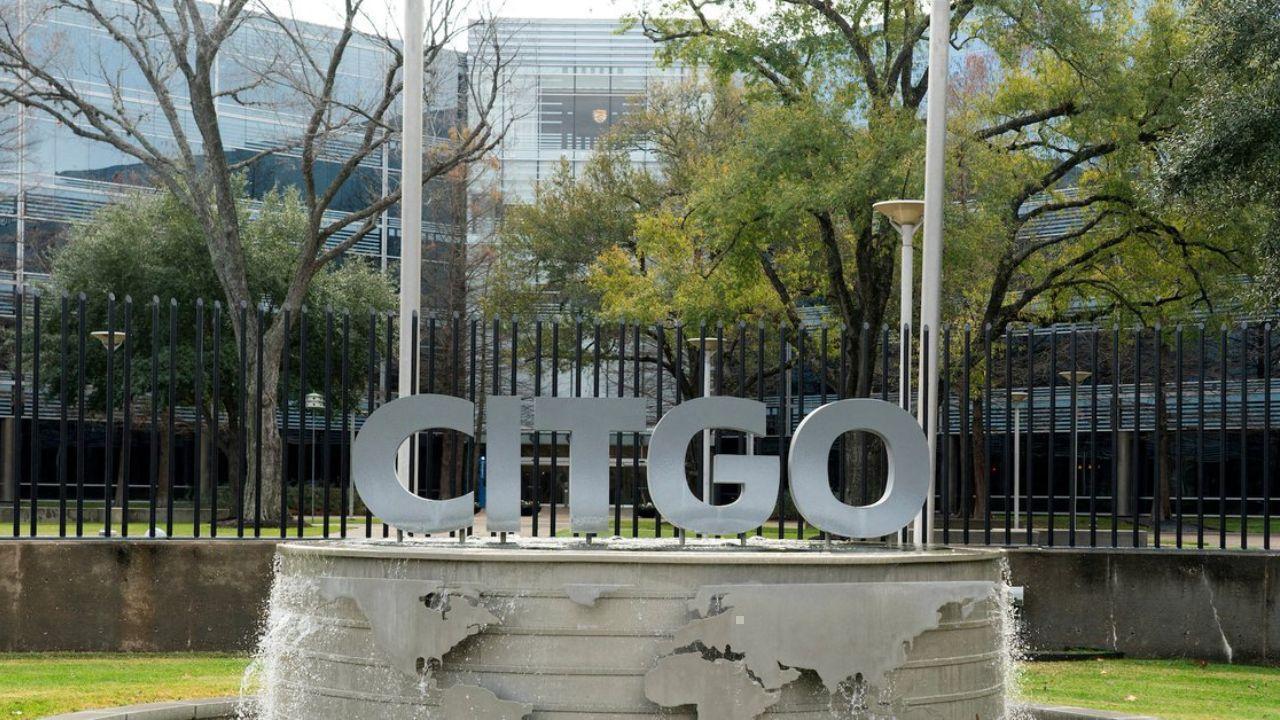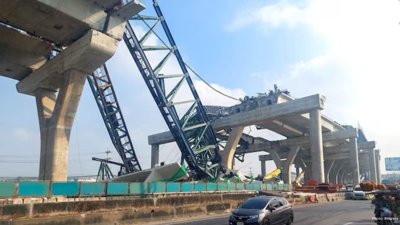
Post by : Avinab Raana
Photo : X / Giovanni Staunovo
The long-running auction to sell shares in the parent company of Citgo Petroleum has reached a critical moment. Court proceedings began this week in a U.S. courtroom, where bidders and creditors are locked in a fierce contest over who will win the right to control one of the country’s largest refiners. With billions in claims and complex legal battles at play this hearing may well decide the fate of Citgo’s ownership.
At issue are competing claims by fifteen creditors who seek up to $19 billion from the proceeds of any sale. Among them are holders of defaulted Venezuelan bonds and firms that were expropriated under past governments. Their interests diverge sharply over whether to accept a cash payment now or to continue fighting for what they believe are stronger legal positions in separate litigation.
One contender, Amber Energy affiliated with Elliott Investment Management, surfaced with a $5.9 billion offer that included a $2.1 billion immediate cash payment to PDVSA’s 2020 bondholders. This move is designed to settle a long-standing claim in New York and offers some certainty to bondholders who have waited years. But its promise has triggered fierce objections from other parties who argue the offer undermines their own litigation leverage.
By contrast Gold Reserve and other interested parties prefer to wait for outcomes in ongoing legal proceedings. They believe that rushing into a deal before the New York bond case is resolved could result in unfair compensation dynamics.These parties aim to press for what they see as full value from their claims rather than accept immediate but potentially lower returns.
The hearing itself is unfolding in Delaware, with Judge Leonard Stark presiding. Over four days of testimony, legal arguments, and expert insight he will decide which bid survives procedural and geopolitical risk tests. If necessary, the hearing could extend into October to allow for more evidence. The judge’s decision will need to balance legal technicalities, fairness among claims, and geopolitical concerns given Venezuela’s state involvement.
Behind the financial numbers lie thorny issues of politics and procedure. Venezuela’s government, U.S. sanctions, questions of bond legitimacy, and competing jurisdictions all complicate a deal. Creditors from expropriated companies argue that their claims stand under treaties and past agreements. Bond investors say their rights must be honored. The court must navigate all these cross-currents to ensure legitimacy and avoid future legal challenges.
Citgo Petroleum is the seventh largest U.S. refiner and owns strategically important infrastructure. The company refines and distributes large volumes of fuel products across the United States. Control of its parent company means not only financial gain but also influence over a major part of America's energy supply chain. In a world where energy security and supply stability matter more than ever this auction draws attention far beyond the courtroom.
Bondholders of PDVSA’s 2020 debt have waited years for clarity. Amber Energy’s offer to pay $2.1 billion to those bondholders offers partial resolution. But some bondholders remain wary that any deal before judicial confirmation in New York could undercut their stronger case. They face a decision: accept a known but possibly lower payout now or hold out for potential vindication through litigation that could yield more or nothing.
For many involved, the tradeoff between certainty and potential gains looms large. A deal now brings immediate capital and closure for some, and reduces legal costs. But waiting could lead to higher returns if their legal positions succeed. The risk is that delay might also mean years of uncertainty, further legal costs, or even legal rulings that go against them.
Judge Stark has to consider procedural challenges, including whether Amber’s bid should be disqualified. Questions include whether its cash payment to bondholders interferes with ongoing litigation and whether all claimants have been treated fairly. There are also geopolitical risks, since Venezuela’s state oil company PDVSA is part of the equation. Sanctions or foreign government disputes could complicate or even block parts of the transaction.
Whoever wins this auction does not simply gain ownership of paper. They gain control of physical refining assets, supply chains, storage facilities, distribution networks. The ripple effects could influence fuel supply, pricing, and refining competition. Investors, regional regulators, and other refiners will watch closely because major ownership changes in refining capacity can shift market dynamics.
A pivotal piece of this puzzle is the bondholders’ case in New York, which challenges the legitimacy of certain PDVSA 2020 bonds. If the court in New York validates those bonds, then bondholders could gain stronger standing and maybe leverage better payouts. If that legal challenge fails or is delayed, Amber’s offer might appear more attractive since it already includes a cash component.
The court’s decision will affect not only Amber and Gold Reserve but every creditor who has filed a claim. If Amber wins, others may receive pro rata shares or may be forced into settlement. If Gold Reserve or another bidder wins, they might prioritize different claims. Either way, many claimants have invested legal capital and time in expectation of a favorable ruling. The outcome could shift decades of legal strategy.
This auction is one example of how creditors of state-owned enterprises and expropriation victims navigate international debt recovery. The case will set precedents. It could influence how defaulted bondholders negotiate with sovereign entities. It could influence how U.S. courts treat conflicts between multiple jurisdictions. For investors and plaintiffs around the world this is more than a case about Citgo it is a test of process and power.
Over the coming days both bidders are likely to lean heavily on expert testimony. Creditors will monitor how the court treats New York bond legitimacy. Observers will watch whether Amber’s bid survives procedural scrutiny. They will also watch whether the judge allows the case to extend into October. Much may hinge on small technical issues admissible evidence, interpretations of sanctions law, or inter-creditor fairness.
The Citgo parent auction is now at a crossroads. On one side there is the appeal of a quick settlement that delivers payouts and ends years of legal entanglement. On the other side are those who believe that waiting for full judicial clarity is essential, even if it means extended uncertainty. The court’s decision will not just shape the future ownership of a vital refiner; it will influence global debt recovery, the enforcement of contracts, and how creditors judge risk. At its conclusion many will judge this auction not just by the winning bid but by whether justice and fairness were preserved.
Auction hearing, Bondholders, Creditors










Advances in Aerospace Technology and Commercial Aviation Recovery
Insights into breakthrough aerospace technologies and commercial aviation’s recovery amid 2025 chall

Defense Modernization and Strategic Spending Trends
Explore key trends in global defense modernization and strategic military spending shaping 2025 secu

Tens of Thousands Protest in Serbia on Anniversary of Deadly Roof Collapse
Tens of thousands in Novi Sad mark a year since a deadly station roof collapse that killed 16, prote

Canada PM Carney Apologizes to Trump Over Controversial Reagan Anti-Tariff Ad
Canadian PM Mark Carney apologized to President Trump over an Ontario anti-tariff ad quoting Reagan,

The ad that stirred a hornets nest, and made Canadian PM Carney say sorry to Trump
Canadian PM Mark Carney apologizes to US President Trump after a tariff-related ad causes diplomatic

Bengaluru-Mumbai Superfast Train Approved After 30-Year Wait
Railways approves new superfast train connecting Bengaluru and Mumbai, ending a 30-year demand, easi